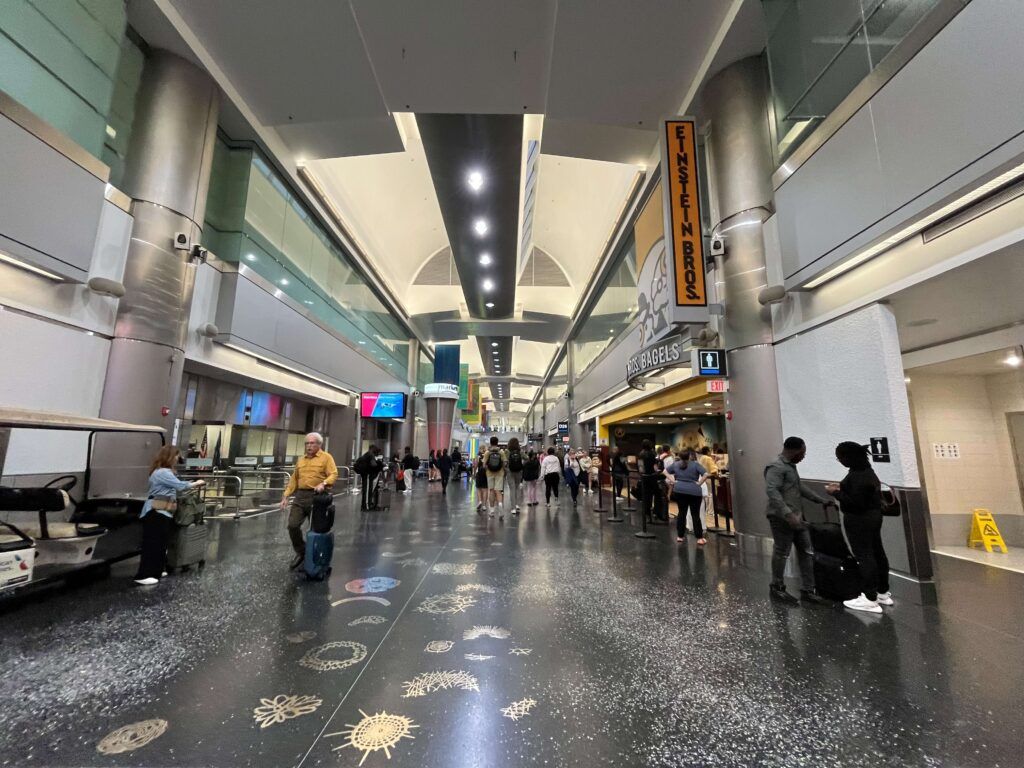
Federal cannabis reform could transform not only how marijuana is transported, but where. With growing demand, rising state-by-state legalization, and national distribution on the horizon, the cannabis supply chain is poised to look vastly different. One of the biggest shifts? The potential emergence of cannabis cargo hubs at select U.S. airports—those already built to handle high volumes of perishable goods, pharmaceuticals, or temperature-sensitive cargo.
Airports aren’t simply transit zones. They’re logistical ecosystems—equipped with secure warehousing, advanced customs clearance, and infrastructure for rapid throughput. Major cargo hubs already manage vast shipments of vaccines, seafood, flowers, and tech products. Cannabis, once federally legalized, could join that list.
Top U.S. Airports Poised for Cannabis Cargo Operations
1. Los Angeles International Airport (LAX) – California
Already the second-busiest airport in the U.S. for cargo, LAX offers over two million square feet of air cargo facilities. California’s established cannabis market, strong agricultural ties, and access to Pacific trade routes make it an obvious candidate. LAX also sits near some of the country’s most mature cannabis operators and testing labs.
2. Denver International Airport (DEN) – Colorado
Colorado was among the first states to legalize cannabis, and Denver International already supports regional logistics with massive cargo infrastructure. The state’s central location and industry history would support domestic cannabis transfers from cultivators to national processors or retailers.
3. Miami International Airport (MIA) – Florida
MIA ranks first in the U.S. for international air freight and has a robust cold-chain logistics setup—ideal for storing sensitive cannabis products like concentrates and edibles. With Latin American trade links and Florida’s expanding medical market, MIA could become the Southeast’s cannabis shipping hub.
4. Chicago O’Hare International Airport (ORD) – Illinois
ORD’s massive cargo footprint and central location in the Midwest offer prime connectivity for coast-to-coast cannabis distribution. Illinois has a growing legal market and existing infrastructure supporting pharmaceuticals and controlled substances, giving it an operational head start.
5. Dallas Fort Worth International Airport (DFW) – Texas
While Texas hasn’t fully embraced cannabis legalization, its geography and volume of cargo make DFW an important potential player. The airport handles over 900,000 tons of cargo annually and supports advanced logistics through UPS and FedEx hubs. If state reform follows federal changes, DFW could rapidly adapt.
6. Anchorage Ted Stevens International Airport (ANC) – Alaska
Often overlooked, ANC is a vital link in trans-Pacific cargo. Many international flights refuel here, and the airport handles a surprising volume of freight. Its proximity to both Asia and North America could make ANC a cannabis transshipment gateway for global trade if federal and international laws align.
What Airports Need to Prepare
Federal reform won’t simply flip a switch. Airports would need to comply with cannabis-specific safety and tracking regulations. Facilities might require secure vaults, specialized personnel training, temperature-controlled storage, and METRC or other seed-to-sale software integration. Regulatory partnerships with TSA, FAA, DEA, and U.S. Customs will be essential to align on compliance, especially with high-value and highly regulated cargo.
Beyond physical infrastructure, legal air freight partnerships will also shape the playing field. Carriers like FedEx, UPS, and DHL—currently barred from transporting cannabis—may enter the space post-reform, further influencing which airports lead.
Looking Ahead
Federal legalization will unlock enormous potential in cannabis logistics. Airports that can combine efficient infrastructure with cannabis-ready compliance protocols will dominate early distribution efforts. From West Coast gateways to central logistics hubs, the next generation of cannabis cargo is likely to take flight from familiar runways—this time, legally loaded and heading nationwide.
Learn more about distribution hubs being the backbone of the cannabis industry here.
